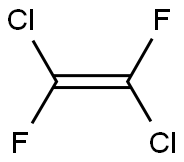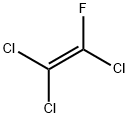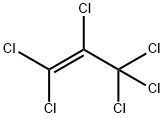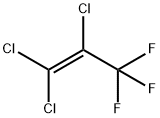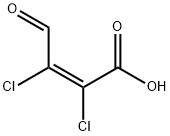A0675656
Trans-1,2-Dichloroethylene , 98% , 156-60-5
Synonym(s):
trans-1,2-Dichloroethene;trans-Acetylene dichloride
CAS NO.:156-60-5
Empirical Formula: C2H2Cl2
Molecular Weight: 96.94
MDL number: MFCD00062942
EINECS: 205-860-2
| Pack Size | Price | Stock | Quantity |
| 5g | RMB215.20 | In Stock |
|
| 100g | RMB2239.20 | In Stock |
|
| others | Enquire |
Update time: 2022-07-08
PRODUCT Properties
| Melting point: | −57 °C(lit.) |
| Boiling point: | 48-60 °C(lit.) |
| Density | 1.257 g/mL at 25 °C(lit.) |
| vapor pressure | 5.32 psi ( 20 °C) |
| refractive index | n |
| Flash point: | 43 °F |
| storage temp. | Refrigerator |
| solubility | Miscible with acetone, ethanol, and ether and very soluble in benzene and chloroform (U.S. EPA,
1985) |
| form | Liquid |
| color | Clear colorless |
| explosive limit | 12.8% |
| Water Solubility | Miscible with ethanol, ethyl ether, acetone, benzene and chloroform. Immiscible with water. |
| Merck | 14,92 |
| BRN | 1420761 |
| Henry's Law Constant | 10.12 at 30 °C (headspace-GC, Sanz et al., 1997) |
| Exposure limits | OSHA PEL: TWA 200 ppm (790 mg/m3); ACGIH TLV:
TWA 200 ppm (adopted). |
| Dielectric constant | 2.27 |
| Stability: | Incompatible with oxidizing agents, bases. Stable, but may decompose on exposure to air, moisture or light. Highly flammable. |
| LogP | 2.06 |
| CAS DataBase Reference | 156-60-5(CAS DataBase Reference) |
| EPA Substance Registry System | trans-1,2-Dichloroethylene (156-60-5) |
Description and Uses
trans-1,2-Dichloroethylene is used in the preparation of solvents and in chemical mixtures. It also acts as a synthetic agent and active constituent of perfumes. Further, it is used for electronics cleaning, precision cleaning and metal cleaning activities.
Safety
| Symbol(GHS) |   GHS02,GHS07 |
| Signal word | Danger |
| Hazard statements | H225-H332-H412 |
| Precautionary statements | P210-P273-P304+P340+P312 |
| Hazard Codes | F,Xn,T |
| Risk Statements | 11-20-52/53-39/23/24/25-23/24/25 |
| Safety Statements | 7-16-29-61-45-36/37 |
| OEB | A |
| OEL | TWA: 200.0 ppm; 790.0 mg/m3 |
| RIDADR | UN 1150 3/PG 2 |
| WGK Germany | 2 |
| RTECS | KV9400000 |
| TSCA | Yes |
| HazardClass | 3 |
| PackingGroup | II |
| HS Code | 29032990 |
| Hazardous Substances Data | 156-60-5(Hazardous Substances Data) |
| Toxicity | LD50 in rats (ml/kg): 1.0 orally; 60 i.p.; in mice (ml/kg): 3.2 i.p. (Freundt) |


